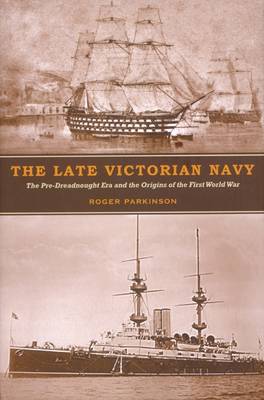
- Afhalen na 1 uur in een winkel met voorraad
- Gratis thuislevering in België vanaf € 30
- Ruim aanbod met 7 miljoen producten
- Afhalen na 1 uur in een winkel met voorraad
- Gratis thuislevering in België vanaf € 30
- Ruim aanbod met 7 miljoen producten
Zoeken
Omschrijving
A reappraisal of the late Victorian Navy, the so-called `Dark Ages', showing how the period was crucial to the emergence of new technology defined by steel and electricity. In purely naval terms, the period from 1889 to 1906 is often referred to (and indeed passed over) as the `pre-Dreadnought era', merely a prelude to the lead-up to the First World War, and thus of relatively little importance; it has therefore received little consideration from historians, a gap which this book remedies by reviewing the late Victorian Navy from a radically new perspective. It starts with the Great Near East crisis of 1878 and shows how itsaftermath in the Carnarvon Commission and its evidence produced a profound shift in strategic thinking, culminating in the Naval Defence Act of 1889; this evidence, from the ship owners, provides the definitive explanation of whythe Victorian Navy gave up on convoy as the primary means of trade protection in wartime, a fundamental question at the time. The book also overturns many assumptions about the era, especially the perception that the navy was weak, and clearly shows that the 1870s and early 1880s brought in crucial technological developments that made the Dreadnought possible.
Specificaties
Betrokkenen
- Auteur(s):
- Uitgeverij:
Inhoud
- Aantal bladzijden:
- 336
- Taal:
- Engels
Eigenschappen
- Productcode (EAN):
- 9781843833727
- Verschijningsdatum:
- 19/06/2008
- Uitvoering:
- Hardcover
- Formaat:
- Ongenaaid / garenloos gebonden
- Afmetingen:
- 165 mm x 236 mm
- Gewicht:
- 635 g

Alleen bij Standaard Boekhandel
+ 418 punten op je klantenkaart van Standaard Boekhandel
Beoordelingen
We publiceren alleen reviews die voldoen aan de voorwaarden voor reviews. Bekijk onze voorwaarden voor reviews.











